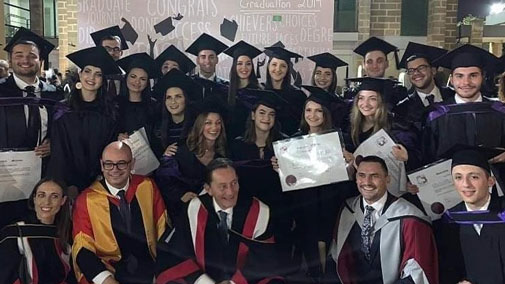
The educators of the global physiotherapy community are gathering these days. A few weeks ago I had the great pleasure of attending the European Network of Physiotherapy in Higher Education (ENPHE) conference in Groningen. ENPHE’s membership includes higher education institutes in Europe and also associate members in the Middle East.
More recently, the Education Leadership Conference (ELC) took place in Washington State in the United States. ELC is organised by the Academy of Physical Therapy Education, a component of APTA, whose membership are individual physiotherapists with an interest in education and the American Council of Academic Physical Therapy (ACAPT) which is formed by members from physical therapy educational programmes from academic institutions in the United States.
The themes of these conferences frame some of the issues being considered by educators of the next generation of physiotherapists. ENPHE’s conference was called ‘The End of Physiotherapy? New ideas on Health’ and ELC considered ‘Setting Sail: Discovering a New World of Opportunities’.
CLADEFK, or the Latin American Center for the Development of Physiotherapy and Kinesiology, also has a network that promotes and supports the development of education in 11 countries in the region (Mexico, Venezuela, Colombia, Brazil, Ecuador, Peru, Bolivia, Chile, Argentina, Uruguay and soon Costa Rica).
InBeta is a ‘community of physiotherapy educators who are invested in the idea that most physiotherapy education is pretty dull and that there may be another way’. They held an ‘unconference’ proximate to WCPT Congress 2019 in Geneva in May this year. The Critical Physiotherapy Network is a network with the aim of nurturing a community of critical thinkers with a desire to challenge and reform physiotherapy practice and thinking which must, by its nature, include and inform education.
The WCPT Network for Physical Therapists Educators (PTE) has struggled to be sustainable. However, after a session at our congress in Geneva, it has been reignited under the guidance of Steven Chesbro and Nina Rydland Olsen.
While I have had the privilege of participating in many of these networks, in preparing the keynote closing lecture at ENPHE, I realised the networks may not know each other. I reached out to the ENPHE, ACAPT, CLADEFK, and PTE with immediate responses to meet and see where we could find the collaborative advantage.
I was curious to know whether there is a thread that could connect us all? What could all these networks do together in a meaningful and inclusive way that would create a global conversation? How can we transcend fragmentation to ask and answer the big questions in physiotherapy education? Or are we too diverse? Maybe it is naïve to think there is some question to be answered where the whole is greater than the sum of the parts.
However, we all agreed that connecting across the networks was a positive next step with invitations being exchanged to attend congresses in 2020. We agreed that while many educators and institutions were connected in networks, for some educators, in parts of our diverse community, access to such networks is not possible. Which is where WCPT network has a key role. The concept of a global forum on physiotherapy education was discussed with WCPT Congress 2021 being an ideal time and place to connect and perhaps plan programming and networking.
WCPT will be holding a summit for all recognised subgroups in the first half of 2020. The summit will explore the future shape and development of communities within the global profession. PTE will be included in the summit and these discussions to help us work to support a global community of diverse and inclusive educators for future WCPT projects.
Are you an educator of physiotherapists who wants to join in a global conversation? Here’s some suggestions about how to get involved:

